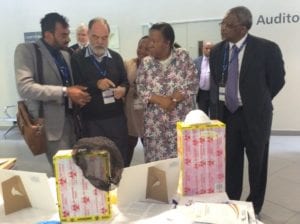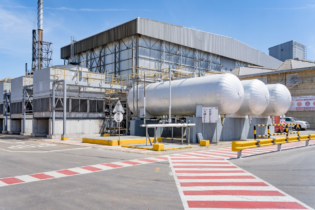The Minister of Science and Technology, Naledi Pandor, has announced the establishment of three more research centres of excellence (CoEs), bringing the number of such centres in the country to 17.
The CoEs will be in water, HIV and Aids, and human settlements, and will be co-funded with other stakeholders. They are expected to start functioning in the next financial year, following a call for proposals from research institutions. The Minister made the announcement at a forum for the directors of Department of Science and Technology (DST)-National Research Foundation (NRF) centres of excellence. The forum was held at the University of the Western Cape, marking 10 years since the first DST-NRF CoEs were established. The forum, themed “Celebrating Ten Years of Research Excellence”, showcases the CoEs’ research outputs over the past 10 years, which have enabled South Africa to take the lead in various disciplines and put the country’s research outputs on par with the best in the world. Through the CoE Programme more than 650 postgraduate students are trained per annum. Government is investing R472 million over the Medium Term Expenditure Framework in the 14 existing centres.Government to do more
The Minister said that although the DST, in partnership with other institutions, had made significant contributions to the building of the next generation of scientists, government still had to do more.“Our concern is threefold – not enough blacks, not enough South African blacks, and not enough women will be part of that new generation.”
A significantly lower proportion of the total number of African graduates was enrolling for postgraduate studies than was the case for white students. It was imperative to devise ways of attracting more South African and African black students into postgraduate research degrees and into research and academic careers. “Our aim is to transform science, technology and innovation in Africa – just as South Africa in a political and economical context needs strong and reliable partners elsewhere on our continent, so too does South African science,” said the Minister. The DST and the NRF agreed to host the CoE Directors’ Forum on an annual basis to allow the different CoEs to make presentations on their work and highlight their successes. It is envisaged that the various engagement sessions at the forum will also trigger debates on how government can provide the kind of support needed for societal engagement, as well as look at strengthening international collaborations and partnerships.







